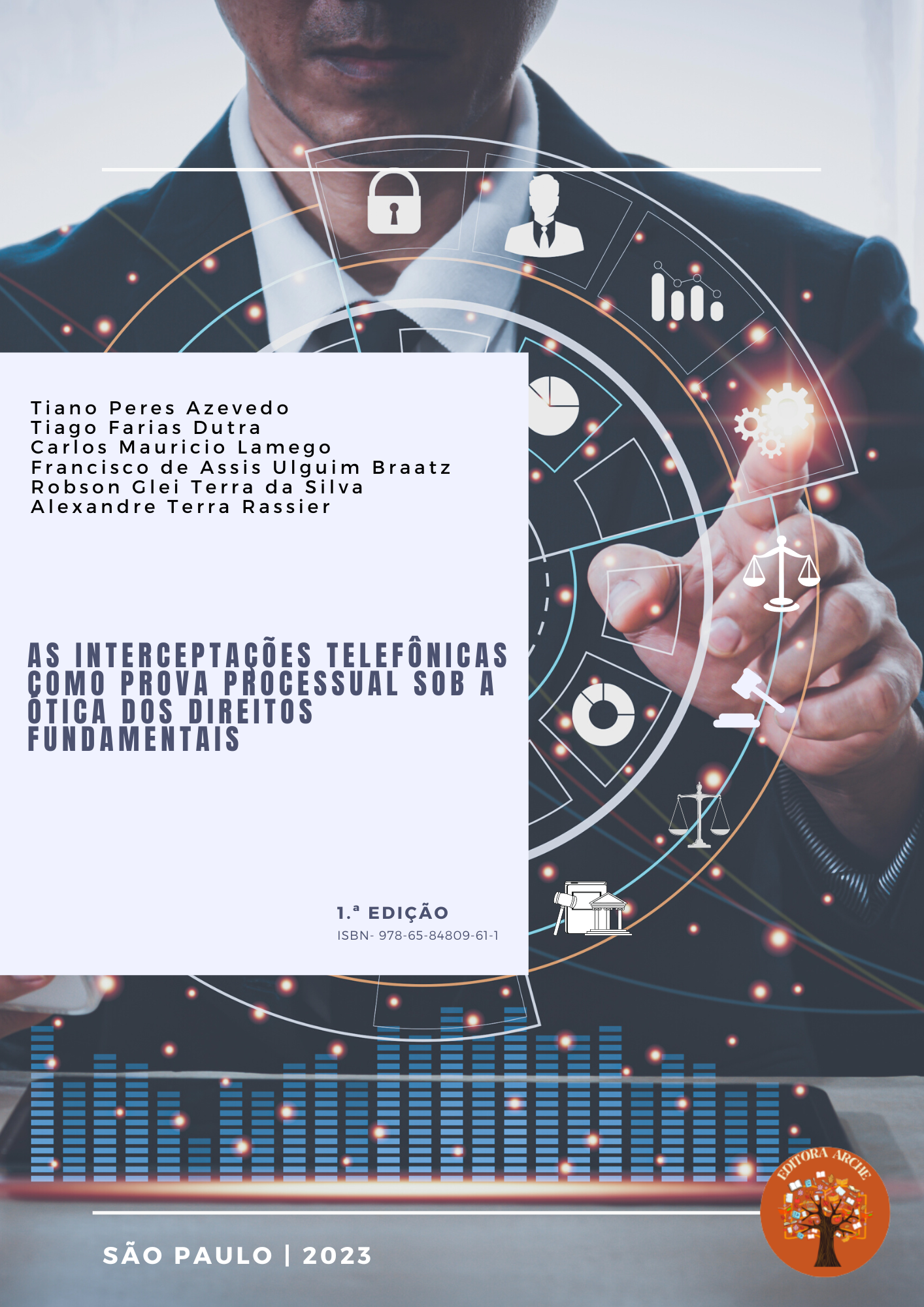TELEPHONE INTERCEPTIONS AS PROCEDURAL EVIDENCE FROM THE PERSPECTIVE OF FUNDAMENTAL RIGHTS
Keywords:
Evidences. Fundamental rights. Interception.Abstract
This book scrutinizes the controversial issue of telephone interceptions and their application in the criminal procedural scope, from the perspective of the fundamental rights guaranteed by the Federal Constitution. The objective is to understand how telephone interception is used as a means of obtaining evidence, as well as its implications and limitations in light of individual rights and guarantees.
The topic is relevant at a time when the use of these investigative techniques has been the subject of debates and questions regarding their scope and effects on privacy and freedom of expression. Therefore, it is essential to understand the regulatory framework and the legal requirements for its application, as well as the role of the jurisprudence of the Federal Supreme Court in the improvement of standardization.
This work is divided into two parts: in the first, the constitutional aspects of telephone interception are addressed, while in the second, procedural aspects and individual guarantees related to the use of this technique as a means of obtaining evidence are presented. The result is an in-depth and up-to-date analysis of the subject, which contributes to a deeper and more thorough understanding of its application in legal practice.
Being, initially, the result of research and study dedicated to Post-Graduation in Public Security, and it is expected that it will be of great use to students, professionals and those interested in the subject.
Before exposed, I invite the noble readers to detail the theme, truly fascinating from this book.
The authors.
Downloads

Downloads
Published
How to Cite
License
Atribuição CC BY
